Although we know that addiction is a chronic disease of the body and the mind, developing effective treatments for it has taken decades of research and is far from perfected. There is no one right way to treat addiction. Practitioners of holistic medicine believe in treating the whole person, rather than treating a single disease or illness. If you have been struggling with addiction and traditional treatments have not been successful, consider seeking the help of a trained and experience practitioner of holistic medicine.
What Is Holistic Medicine?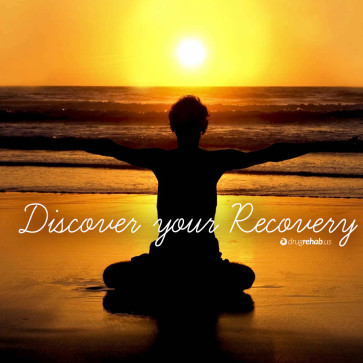
The philosophy behind holistic medicine is treating the whole person. In traditional Western medicine, physicians treat a disease, first and foremost. A holistic practitioner gets to know the patient as an individual and considers his mental, physical and spiritual health, as well as the particular disease to be treated. The practitioner believes that many aspects of a patient’s life have become unbalanced and seeks to rebalance them.
Holistic medicine also means using preventive measures and many different medical techniques that complement each other. These are not limited to traditional medicine only.
Holistic Techniques And Addiction
Holistic medicine is well suited to treating addiction because, unlike many physical conditions, addiction cannot be treated with a course of medication or any other single technique. Treating addiction is a lifelong process and needs to be individualized to each patient. Holistic caregivers are trained in the practice of assessing each patient as an individual and developing a treatment plan that addresses the disease as well as overall wellness.
Many of the techniques used in holistic medicine can help you to find relief from withdrawal symptoms. They can reduce stress, anxiety and depression symptoms, any of which may lead to relapse if ignored. They can also improve your overall health, which is a powerful way to avoid relapsing.
Some of these techniques include acupuncture and acupressure, biofeedback and neurofeedback, herbal medicines, hypnosis, meditation, yoga, exercise, dietary and nutrition changes and Qigong, an ancient Chinese practice involving the balance of Qi, or energy.
Unfortunately, the research on how effective holistic medicine is in treating addiction is scarce. As medicine changes and evolves, perhaps more researchers will be willing to look into the alternative practices used by holistic practitioners. Until then you may simply want to try a holistic approach and see if it works for you. If you work with a trained and experienced practitioner, there is no harm in trying. The vast majority of techniques used in holistic medicine are safe and risk-free.
Finding A Holistic Practitioner
The best way to get the most out of holistic medicine is to seek help from the right practitioner. In the hands of someone who is untrained or inexperienced, you may not see any benefits and in a worst-case scenario you could be harmed. Start with your primary care physician for a referral. If your doctor has no one to refer, consider looking at professional organizations for holistic medicine practitioners. Always select someone who has been trained. Also look for someone who has worked with addicts. This type of experience will be invaluable.
When you go to your first appointment with a holistic medicine practitioner, consider it an interview. You need not come back if you don’t feel comfortable. The person working with you should assess your whole health, not just your addiction. He should ask you lots of questions and make you feel comfortable.
Holistic medicine is considered to be an alternative to traditional medicine, but it need not replace it. You can still seek help from a physician, go to rehab and work with a drug counselor while also working with a holistic practitioner. A true professional will work with you to integrate all of these types of care for your greatest benefit.
We recommend Promises Austin Luxury Rehab. They treat both men and women effectively and holistically, in a beautiful and private setting, with an excellent client-to-staff ratio!
Your child is struggling with addiction. You have always been his caregiver. As a parent, you have taken care of him, helped him when he was down, kept him safe and took action when needed. Now that he is facing this very personal battle, you may feel helpless. How can you possibly take care of his needs when he is being ravaged by this disease? As a parent, the feeling of helplessness that accompanies the addiction of a child can be overwhelming and leave you with a sense of despair. You can’t fix the problem, but you can be there for your child and lend your support.
Why Can’t I Fix His Addiction?
You cannot fix your child’s addiction or cure him of it because addiction is a chronic disease with no hard and fast cure. You would never blame yourself for not being able to cure your child’s asthma or diabetes because you are not a doctor. You are not an addiction expert, a therapist or a doctor and you cannot treat or cure his disease. The sooner you are able to accept this fact, the better you will feel. That sense of helplessness will begin to lessen when you accept that your child has a disease that will require treatment by experts.
Can I Help My Child Overcome Addiction?
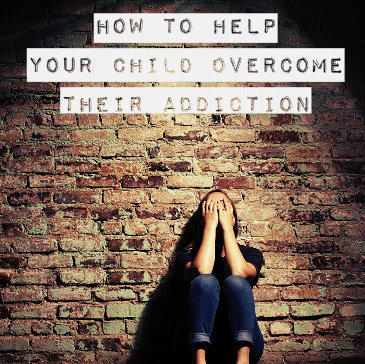 You do have the ability to help your addicted child. Once you accept that you cannot fix the problem, you can take steps to help him. Doing so will help to relieve those helpless feelings threatening to overwhelm you. In fact, taking action of some kind will keep you from falling into hopeless despair, which often leads to lethargy and inaction. Your child does need you now, so take steps to do what you can to help:
You do have the ability to help your addicted child. Once you accept that you cannot fix the problem, you can take steps to help him. Doing so will help to relieve those helpless feelings threatening to overwhelm you. In fact, taking action of some kind will keep you from falling into hopeless despair, which often leads to lethargy and inaction. Your child does need you now, so take steps to do what you can to help:
- Educate yourself – You have been blindsided by this problem and you probably have little experience with addiction. To better understand what your child is going through and what he needs from you, educate yourself about the disease of addiction. It will help you to have patience with him and to learn how to better support and assist him.
- Investigate treatment options – Unless your child is still a minor, you cannot force him to get professional help. You can, however, present him with options for treatment. Talk to your doctor about resources for addiction care and collect information about your options. Visit therapists and rehab facilities to get an idea of what is available and so that you can give your child the best choices when he is ready for help.
- Consider family therapy – Addiction is a disease that affects the entire family. Once your child has decided to get help, you can be an active participant. Engage in group therapy sessions with your child and other members of the family. He will find motivation in seeing that you and his loved ones are committed to his treatment.
- Build support – Your child is going through a difficult struggle, but so are you. You cannot give all your attention to him and forget about your own needs. Make sure you have built up support for yourself. Consider joining a support group for the loved ones of addicts. Also make sure that you have friends or family with whom you can talk when you feel overwhelmed and stressed. Support is necessary for addicts, but it is important for you too.
It is only natural to feel helpless when you cannot fix your child’s problem. You can guide him through it, though, and you can support him. When he is ready for help, be there for him and you will be doing the best you can.
If You Or Someone You Love Is Struggling With Drug Or Alcohol Abuse, You’ve Come To The Right Place – Help Is Just A Phone Call Away!
Alcoholic hepatitis is a serious and potentially deadly liver ailment triggered by prolonged, excessive alcohol intake. It constitutes one form of a larger condition called alcohol-related liver disease. In a study published in May/June 2014 in the journal Alcohol and Alcoholism, researchers from two U.S. universities explored the potential usefulness of a medication called baclofen in easing the effects of alcoholic hepatitis in people affected by alcoholism. This medication, originally developed to treat certain types of muscle spasms, has already been shown to help people receiving treatment for alcoholism reduce the intensity of their cravings.
Alcoholic Hepatitis
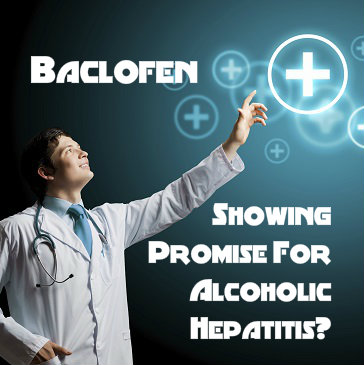 Hepatitis is the generic medical term for any disease mechanism that results in inflammation inside the liver, the body’s primary organ for doing such things as processing toxins and regulating cholesterol levels. Whenever you drink alcohol, a substance essentially poisonous to humans, your liver must process it and break it down so you can avoid any harmful effects.
Hepatitis is the generic medical term for any disease mechanism that results in inflammation inside the liver, the body’s primary organ for doing such things as processing toxins and regulating cholesterol levels. Whenever you drink alcohol, a substance essentially poisonous to humans, your liver must process it and break it down so you can avoid any harmful effects.
Unfortunately, the liver breaks down alcohol relatively slowly and you can easily overwhelm its capacity for detoxification. A person who regularly consumes excessive amounts of alcohol is at risk for one or more progressively damaging changes in his or her liver function.
The first of these changes, called alcoholic fatty liver disease, occurs when the liver starts to produce an abnormally large amount of fat inside its individual cells. Alcoholic hepatitis sets in after alcoholic fatty liver disease and produces symptoms such as jaundice, declining appetite, pain in the abdominal region, nausea and vomiting. The third stage of damaging change, called alcoholic cirrhosis, involves a permanent, disruptive buildup of scar tissue inside the liver.
As many as one-third of all people who habitually consume excessive amounts of alcohol will develop alcoholic hepatitis, the American Liver Foundation reports. The inflammation associated with the condition can have a negative impact on liver function that ranges from mild to severe. People with relatively mild forms of alcoholic hepatitis can recover their liver function if they stop drinking. However, people with relatively severe forms of the condition can experience rapid declines in liver health that lead to a cessation of function (i.e., liver failure). In turn, a person with liver failure can easily die.
Baclofen
Doctors traditionally prescribe baclofen for people experiencing muscle spasms stemming from either certain diseases that damage the spinal cord or the degenerative autoimmune disorder multiple sclerosis. The medication achieves its therapeutic effects in this context by slowing down the spinal cord’s rate of nerve cell interaction. Over the last few years, doctors have started using baclofen as an off-label treatment for the drinking cravings that typically arise during alcoholism recovery. If left unaddressed, these cravings can easily derail an attempt at establishing or maintaining sobriety. In 2012, researchers from France and Italy published the results of a study that confirmed the usefulness of baclofen in reducing the intensity of alcohol cravings.
Baclofen’s Usefulness In Alcoholic Hepatitis Treatment
In the study published in Alcohol and Alcoholism, researchers from Loma Linda University and UCLA used a small-scale investigation of 40 people to test baclofen as a treatment for alcoholic hepatitis. All of the study participants were affected by alcoholism; some of them had both alcoholic hepatitis and alcoholic cirrhosis, while others only had alcoholic hepatitis. Thirty-five of the 40 participants received baclofen at some point during a one-year time period; the average length of use for the medication was just under six months. The researchers gauged the effectiveness of baclofen by comparing the results of seven key tests for alcoholic hepatitis before and after treatment with the medication.
Thirty-four out the 35 baclofen recipients maintained their sobriety throughout the period under consideration. Critically, the researchers concluded that these individuals also experienced a significant reduction in the severity of their alcoholic hepatitis as measured through six out of the seven screening tests. In addition, they concluded that use of baclofen did not produce any substantial side effects.
The study’s authors believe their findings underscore both the usefulness and the safety of baclofen as a treatment for alcoholic hepatitis. However, the size of the study was quite small. As a result, the authors urge further work in this area in order to confirm their results and determine the specific doses of the medication that have the maximum benefits for people with alcoholism-related liver inflammation.
Find Out If Baclofen Can Help Treat Cocaine Addiction
07 Aug 2014
The Place For Alternative Medicine In Addiction
Alternative medicine is gaining popularity as people begin to turn to natural practices in medicine, many of which have been used for centuries in cultures around the world. Some prefer to use alternative medicine, while others turn to practitioners when modern medicine has failed. Today, alternative medicine touches all areas of healing, including addiction. Many rehab facilities are beginning to incorporate some of these techniques.
What Is Alternative Medicine?
Among the different terms referring to alternative medicine, a few stand out. Alternative refers to any practice outside mainstream, modern, Western medicine. Some prefer the term holistic medicine, which means treating the whole person instead of treating a disease or a set of symptoms alone. Holistic approaches use many alternative practices. Complementary medicine is another term commonly used. These are alternative medicine practices that are used in conjunction with traditional treatments.
What Kinds Of Alternative Therapies Are Used For Addiction Treatment?
 Alternative medicine encompasses a variety of practices from ancient Chinese herbal remedies to modern biofeedback equipment. A few of these have found a place in addiction rehab and have helped some people in their battle to give up drugs or alcohol. Acupuncture, which comes from traditional Chinese medicine, is a practice that involves inserting thin needles into the skin. Acupuncture is believed by some to help reduce cravings and the urge to relapse.
Alternative medicine encompasses a variety of practices from ancient Chinese herbal remedies to modern biofeedback equipment. A few of these have found a place in addiction rehab and have helped some people in their battle to give up drugs or alcohol. Acupuncture, which comes from traditional Chinese medicine, is a practice that involves inserting thin needles into the skin. Acupuncture is believed by some to help reduce cravings and the urge to relapse.
Meditation and yoga are also often used as components of addiction treatment. Both come from ancient India and are great for relaxation and stress relief. Yoga is a type of exercise that involves using controlled movements. Research has proven that yoga helps people manage stress. When you can reduce stress in your life you can better resist the urge to abuse substances. Meditation has a similar effect; it helps focus the mind and control will. Turning to meditation when craving occurs can be a very powerful and effective tool.
Other types of alternative medicine may be used during addiction treatment, although research as to their effectiveness is limited. Some of these include art therapy, equine therapy (working with horses), massage therapy, herbal supplements, prayer or spiritual enrichment and hypnosis. Some rehab facilities may also use biofeedback and neurofeedback. These are techniques that use equipment to measure body and brain processes so that you can learn to control them. In neurofeedback, brain waves are retrained to a normal pattern to help reduce cravings.
Should I Use Alternative Medicine To Help Treat Addiction?
Whether alternative medicine practices can help you overcome addiction is uncertain. There is evidence for some of the more common practices like yoga and meditation, but others have received limited attention from researchers. For the most part, these practices are safe and it can’t hurt to try them. If they work for you and help you to stay sober and resist cravings, use them.
Only choose to participate in alternative medical care from experienced practitioners. If certain techniques are of interest, speak to your therapist, clinical team or doctor to get resources for practitioners who have worked with addicts. Most techniques are safe, but in the wrong hands there could be consequences or side effects. Also remember that alternative medicine should be used only in addition to primary addiction treatment. It is also necessary to keep up with therapy or support group sessions. The combination of traditional and alternative medicine, however, may prove to be just the right plan that works for you.
Read Our Other Posts On Addiction Recovery!
04 Aug 2014
How To Cope With A Dual Diagnosis
Addiction and mental illness often go together. If you are addicted to drugs or alcohol, the effects of those substances in your brain can bring on symptoms of depression, anxiety or other mental health disorders. Conversely, if you have a mental illness you may medicate yourself using drugs or alcohol. If you have received a dual diagnosis and are struggling with both mental illness and addiction, there is hope and there is help.
 You Are Not Alone
You Are Not Alone
It may come as a surprise to you when you find out you have been struggling with a mental illness. Getting that diagnosis is never easy to face, but know that you are far from alone. Nearly half of all people with a severe mental illness also have substance abuse issues. Furthermore, half of people who abuse drugs and a third of people who abuse alcohol also struggle with mental illness. Anxiety disorders and depression are the most common mental illnesses that co-occur with addiction. Bipolar disorder and schizophrenia are also seen together with addiction.
Learn About Your Illnesses
When you get that diagnosis for depression, anxiety disorder or any other mental health issue and you also realize you have a problem with drugs or alcohol, it may feel like a light bulb went off in your head. Certain behaviors and feelings may begin to make more sense. To truly understand what is going on in your brain and to empower yourself to act, learn more about both mental health and addiction. The more you know the less mysterious and sinister it will seem. In educating yourself you will also begin to learn about treatment options.
Get Treatment For Addiction And Mental Illness
Getting treatment is important when you have a dual diagnosis. Either you have been self-medicating to treat your mental health symptoms or your symptoms have worsened because of your substance abuse. In either case, you are stuck in a harmful pattern of behaviors. Experts agree that you should treat both issues to get well. One may take precedence over the other, though. For instance, if your substance abuse is wreaking havoc on your physical health and running your life you may need to address your addiction first.
Start with your primary care doctor if you aren’t sure where to go to get help. Your doctor can recommend psychologists or therapists who can get you on the right treatment path for you. You may need to spend some time in a rehab facility. If you do, make sure you look for a program that is experienced in treating people with a dual diagnosis. You don’t want to ignore either one of your issues while treating the other.
Look For Support
Above all, when you find out that you have both an addictive disorder and a mental health disorder it is important to rely on friends and family. A strong support network is one of the most important ways that you can cope with your recovery and treatment. Getting professional help is necessary, but without the support of loved ones, you are at serious risk of relapsing after completing a treatment program.
Support groups can help too. Look for group meetings for alcohol or drug addiction, but also for meetings for people with mental health issues. If you need to join two different groups to meet your needs, that’s fine; just make sure that you have a group of people with whom you can share your feelings and experiences. It will make a big difference to your recovery. Getting a dual diagnosis is not easy to hear, but remember that you are not alone and that there are caring professionals ready to help you.
Opioid maintenance treatment is a form of addiction treatment that uses opioid-based medications as safer substitutes for heroin or other powerful opioid substances of abuse. The two medications typically used in this kind of treatment are methadone and buprenorphine. In a study published in March 2014 in the journal Addiction, a multinational German and Swiss research team explored the potential usefulness of an opioid medication called slow-release oral morphine as an alternative to methadone in opioid maintenance treatment. These researchers concluded that slow-release oral morphine appears to be at least as effective as methadone in treating people with opioid use disorder.
Opioid Use Disorder And Medications
 People affected by opioid abuse or opioid addiction can receive a diagnosis for a condition officially known as opioid use disorder. Some addiction programs use opioid-based medications as temporary treatments for this disorder in order to help their patients/clients avoid the immediate pitfalls of opioid withdrawal. Others use opioid-based medications as longer-term alternatives for people affected by opioid use disorder.
People affected by opioid abuse or opioid addiction can receive a diagnosis for a condition officially known as opioid use disorder. Some addiction programs use opioid-based medications as temporary treatments for this disorder in order to help their patients/clients avoid the immediate pitfalls of opioid withdrawal. Others use opioid-based medications as longer-term alternatives for people affected by opioid use disorder.
Both methadone and buprenorphine produce their drug effects inside the brain more slowly than heroin and other commonly abused opioid substances. In addition, they have a lower maximum effect than the typical abused opioid. During opioid maintenance treatment, doctors rely on these characteristics to introduce either methadone or buprenorphine as an alternative to the unrestrained drug intake associated with unaddressed opioid addiction.
When used in this context, both medications allow addicted users to gain control over their drug intake while simultaneously evading the onset of severe opioid withdrawal. Methadone has a stronger opioid effect than buprenorphine and comes in the form of tablets or oral solutions. Buprenorphine is often combined with a second non-opioid medication called naloxone (which helps reduce any risks for buprenorphine abuse) and comes in the form of a tablet or strip placed under the tongue.
Slow-Release Oral Morphine
Morphine is one of the primary mind-altering substances found naturally in a plant called the opium poppy, which acts directly or indirectly as the originating source of all opioid drugs and medications. Pharmaceutical companies throughout the world manufacture purified forms of this substance as treatments for certain forms of mild and severe pain, including surgical pain and the pain associated with various forms of cancer.
Some forms of morphine pass rapidly to the brain after entering the bloodstream and have a relatively short-term impact on the ability to experience pain. Other forms are designed to pass into the brain slowly over an extended period of time and provide longer-term pain relief. Slow-release oral morphine, also known as extended-release morphine, is a specific type of long-acting morphine commonly prescribed for the treatment of significant pain that doctors expect to continue for prolonged amounts of time.
Slow-Release Oral Morphine’s Usefulness In Opioid Maintenance Treatment
In the study published in Addiction, researchers from six German institutions and one Swiss institution used a project involving 157 German and Swiss adults affected by opioid dependence/addiction to examine the usefulness of slow-release oral morphine in opioid maintenance treatment.
All of these individuals previously received methadone as part of their treatment; for a total of 22 weeks, some of the participants received slow-release oral morphine instead of methadone. The researchers monitored each individual’s continuing involvement in heroin use with two weekly urine drug tests and compared the results of the tests gathered from the methadone users to the results of the tests gathered from the slow-release morphine users.
After completing their comparisons, the researchers found that the slow-release morphine users were slightly more likely to test positive for heroin use during treatment than the methadone users. However, the difference between the two groups was minor and insignificant. The methadone users also had somewhat higher chances of remaining active participants in opioid maintenance treatment than the slow-release morphine users. However, the researchers again characterized the differences between the two groups as negligible. In addition, the group using slow-release morphine did not experience serious opioid-related harm during treatment any more often than the group using methadone.
Benefits Of Easier-Access Morphine For Opioid Maintenance Treatment
The authors of the study published in Addiction concluded that slow-release morphine is apparently just as useful in opioid maintenance treatment as methadone. This is important, in part, because federal guidelines restrict the places in which recovering addicts can receive methadone-based treatment. The authors note that the usefulness of slow-release morphine depends upon the amount of the medication used during opioid maintenance. As a rule, the number of heroin-positive urine tests drops as the amount of slow-release morphine given to a patient/client increases.
If You Or A Loved One Is Struggling With An Addiction…Don’t Give Up, Help Is Waiting – Call Us Now
Addiction researchers know that alcohol produces some of its effects inside the brain by activating sites called opioid receptors, found on the surfaces of nerve cells. However, they don’t completely understand the brain’s opioid receptor system, and therefore don’t entirely know how activation or deactivation of this system can help or harm a person who drinks excessive amounts of alcohol.
In a study published in May 2014 in the journal Biological Psychiatry, a team of U.S. and Danish researchers explored the alcoholism-related role of one specific part of the brain’s opioid receptor system. The researchers concluded that successful manipulation of this segment of the system could lead to the development of a new family of alcoholism medications.
Alcoholism Symptoms
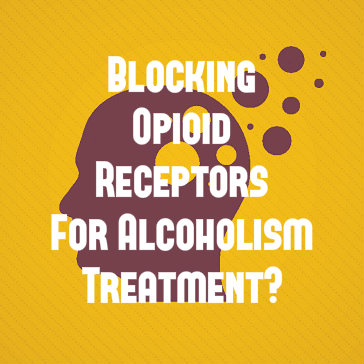 Alcoholism is partially defined by a physical dependence, a switch in long-term brain function characterized by a need to regularly consume alcohol in order to feel “normal.” In addition, people with the condition experience symptoms stemming largely from dependence, including recurring urges to keep drinking, an impaired or absent ability to limit drinking participation, increasing tolerance to the impact of any given amount of alcohol intake and the onset of a withdrawal syndrome if the brain’s requirements for alcohol go unmet.
Alcoholism is partially defined by a physical dependence, a switch in long-term brain function characterized by a need to regularly consume alcohol in order to feel “normal.” In addition, people with the condition experience symptoms stemming largely from dependence, including recurring urges to keep drinking, an impaired or absent ability to limit drinking participation, increasing tolerance to the impact of any given amount of alcohol intake and the onset of a withdrawal syndrome if the brain’s requirements for alcohol go unmet.
Alcohol Use Disorder
In any person, the symptoms of physically dependent alcoholism can overlap with the symptoms of non-dependent alcohol abuse. For this reason, current standards in the U.S. ask doctors to diagnose both alcoholism and alcohol abuse as components of a condition called alcohol use disorder.
Alcohol and Opioid Receptors
Opioid receptors get their name because they act as the pathways that allow opioid drugs and medications in the bloodstream to gain access to the brain and spinal cord (central nervous system). There are several types of these receptors on nerve cell surfaces in the brain. For reasons not fully understood by experts in the field, opioid receptors also play a role in giving alcohol access to the brain.
Pharmaceutical researchers have begun to exploit this fact by developing alcoholism medications designed to produce their treatment benefits by occupying the brain’s opioid receptors and thereby blocking alcohol from triggering some of its characteristic effects. One specific medication currently approved in the U.S. for use in alcoholism treatment, called naltrexone (ReVia, Vivitrol), blocks a particular type of opioid receptor and reduces alcohol cravings by diminishing the amount of pleasure derived from alcohol intake.
New Alcoholism Treatments?
In the study published in Biological Psychiatry, researchers from Washington State University and Denmark’s Neuroscience Drug Discovery used laboratory experiments on rats to investigate the role of one specific type of opioid receptor, called the K opioid receptor, in promoting the onset and continuation of alcoholism.
They chose to explore this topic, in part, in response to accumulating evidence that the K opioid receptor helps determine how people react to excessive alcohol intake. In particular, when a person drinks too much alcohol, activation of this receptor may lead to unpleasant emotional states and loss of the ability to feel pleasure. Counterintuitively, this situation may in turn trigger additional drinking as part of a conscious or unconscious attempt to offset the negative feelings associated with alcohol consumption.
During the study, the researchers supplied large amounts of alcohol to a group of rats for an extended period of time, and then allowed those rats to go through alcohol withdrawal. After examining the rats’ brains, they concluded that long-term, excessive alcohol consumption seriously disrupts function in a part of the brain responsible for helping to maintain critical functions, such as the ability to process emotions and make decisions.
While the rats were going through withdrawal, the researchers gave them a number of drugs designed to manipulate their brains’ K opioid receptors. After analyzing the impact of these drugs, they concluded that problems with the K opioid receptors play a significant role in producing the heavy alcohol consumption that people with alcoholism commonly rely on to cancel out alcohol withdrawal symptoms.
The study’s authors believe their findings may be critically important for the development of future medical treatments for alcoholism that produce their benefits by blocking access to the brain’s K opioid receptors. Specifically, they believe that such treatments could help achieve such goals as diminishing the emotional impact of alcohol withdrawal, helping people in recovery establish a stable state of abstinence and helping people in recovery otherwise meet the objectives of their treatment programs.
Learn About Topiramate Treatment For Alcoholism
Mental illness and substance abuse often occur together. One of the most common types of mental illness, anxiety disorder, is sometimes a cause of substance abuse and addiction, and in some cases follows a substance abuse problem. Nearly 20 percent of all people who struggle with a mood disorder, which includes anxiety disorder, also have a problem with alcohol or drug abuse. Coping with both issues can be a challenge, but experts are always developing new ways to treat co-occurring disorders. There is hope for anyone struggling with both anxiety and substance abuse.
Which Comes First: Addiction Or Anxiety?
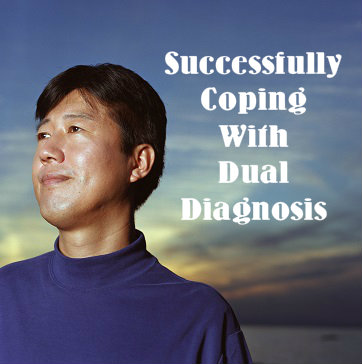 The statistics work both ways. Twenty percent of people with anxiety disorder also struggle with substance abuse, and 20 percent of people who abuse substances have symptoms of an anxiety disorder. So, which develops first? It is possible that the symptoms of anxiety disorders can lead someone to drink or abuse drugs. If you have anxiety and you don’t get treatment for it, using substances can make you feel as if you are alleviating your symptoms. This is called self-medicating. Social anxiety disorder, in particular, commonly leads to substance abuse because using drugs or alcohol can make you feel more comfortable when around people.
The statistics work both ways. Twenty percent of people with anxiety disorder also struggle with substance abuse, and 20 percent of people who abuse substances have symptoms of an anxiety disorder. So, which develops first? It is possible that the symptoms of anxiety disorders can lead someone to drink or abuse drugs. If you have anxiety and you don’t get treatment for it, using substances can make you feel as if you are alleviating your symptoms. This is called self-medicating. Social anxiety disorder, in particular, commonly leads to substance abuse because using drugs or alcohol can make you feel more comfortable when around people.
On the other hand, if you have not struggled with anxiety until after you started abusing alcohol or drugs, it can be the substance abuse that initiated your feelings of anxiousness. Drugs and alcohol have a powerful impact on the brain and how it works. When you abuse these substances you risk making changes to the brain’s chemistry and that can lead to any number of mental illnesses, including anxiety disorders.
Treating Addiction And Anxiety Disorder
It is important to recognize both problems in order to heal from an addiction and an anxiety disorder. By ignoring one and only treating the other, both issues are likely to reappear. Often it is the addiction that becomes obvious first. If you realize you have a problem with drugs or alcohol, start looking for treatment programs, a drug counselor or a support group. A good treatment program for addiction should also screen you for mental illness. If you suspect you have other issues beyond your substance abuse, see a specialist for an accurate diagnosis.
Once you know what you have, you can begin getting treatment for addiction and anxiety. Many experts would agree that it is most important to treat and get addiction under control first and then include treatment for the anxiety disorder. A growing number of treatment facilities treat both issues simultaneously. Keep in mind that your treatment professionals should create a personalized treatment plan that will address both addiction and anxiety.
When you have a handle on your addiction, seek targeted treatment for your anxiety disorder. Therapy may be your best option. Although many people take prescription medications for anxiety, and find relief using them, drugs may not be a good choice for you. Some of these medications are habit-forming and if addiction is a problem for you, it may be best to avoid them. That choice is one for you and your therapist to make together.
As you work toward healing from both addiction and mental illness, be sure to rely on your loved ones for support. Having a strong support network is important to help maintain sobriety and control anxiety. Let them guide you into new activities and hobbies that will help you reduce anxiety without resorting to drugs and alcohol. With professional care and the help of loved ones, you can overcome your co-occurring problems.
Call Us Now – We Are Here To Help You With Mental Health Issues And Addiction!


